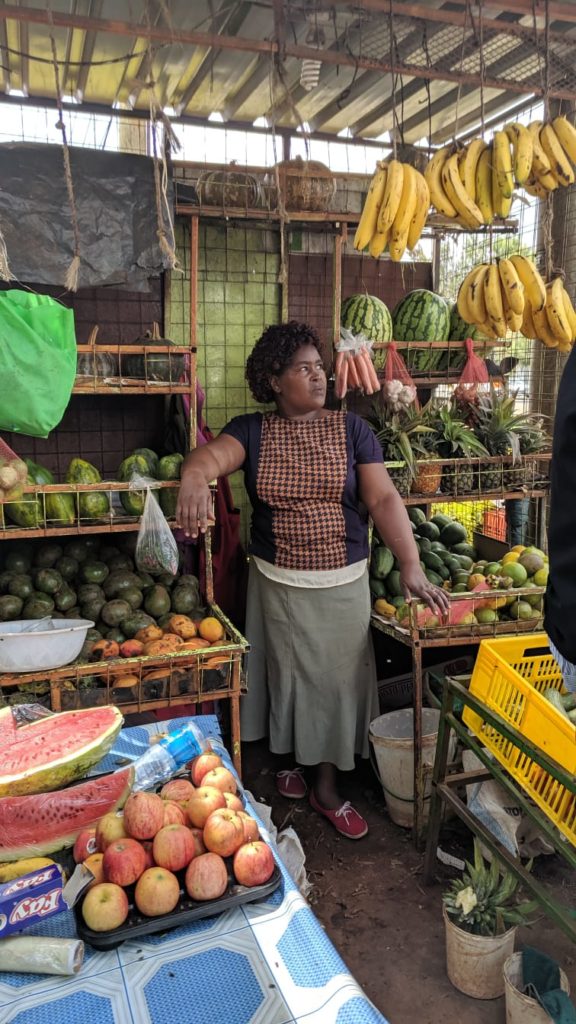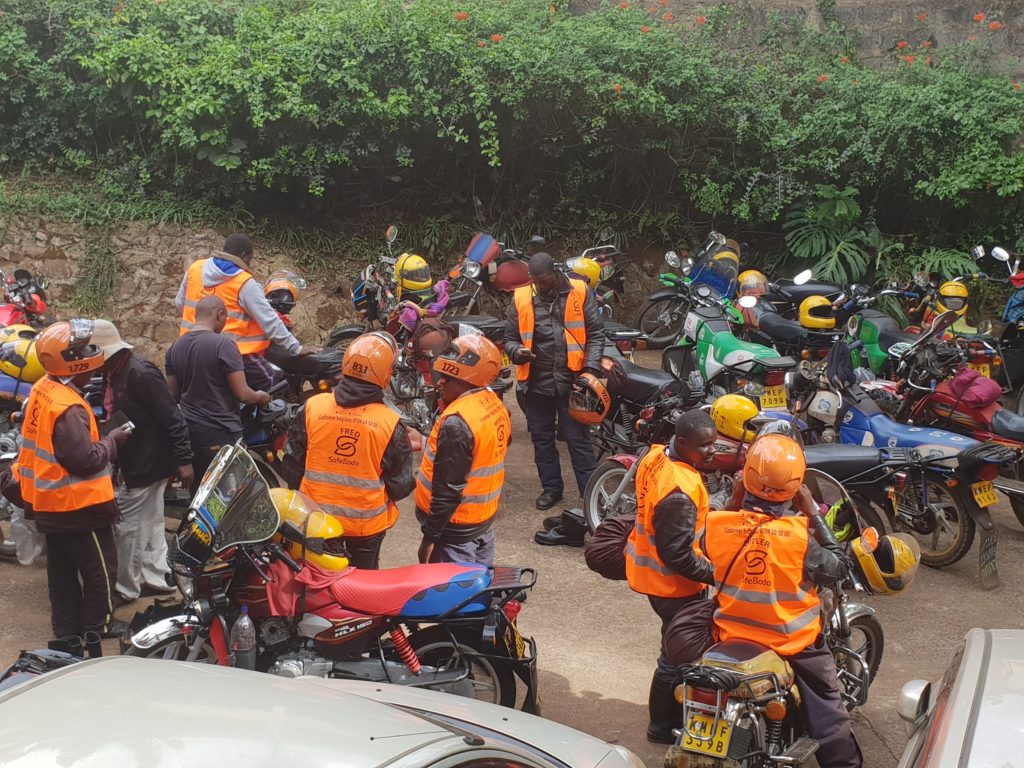In 2018 FiDA Partnership conducted interviews with several key platforms in Africa looking at how platform business models are evolving in terms of financial services.
As we explored platform business models, we found examples of practices that we hypothesize could impede the participation of the financially excluded. We discuss considerations for improving several business practices that could be problematic for financial inclusion, and we highlight three problems and offer suggestions for organizations to consider or areas for researchers to explore more deeply:
- issues around platform participant payouts;
- “pay-to-promote” practices and revenue streams; and
- open and portable profiles, ratings, and benefits.
Platforms should reduce friction around payouts for their participants.
Platforms have been accommodating for customers without bank accounts or who don’t want to use credit cards. Many now offer a cash-on-delivery option or accept mobile money during checkout. Few platforms, however, appear to be making similar investments to accommodate the bank connectivity constraints and cash flow challenges of the people doing the work. Most of the platforms we explored require platform workers to be paid via bank accounts while some allow workers to use M-Pesa accounts in Kenya or interface with PayPal or Western Union (see insight2impact’s research on provider payment methods for more details). Yet, many restrict the frequency and withdrawal destinations that participants can use to transfer money from the platform’s pocket to their own.
Platform workers and merchants experience a time delay between when the work is performed or when the sale happens and when they are paid. Some delay is unavoidable—platforms need at least several days to settle transactions with banks and credit card companies and up to a month in some markets, such as Brazil. Of course, paying workers before transactions are settled would require significant cash reserves or a factoring arrangement; platforms, especially smaller ones, may not have the former, and they may not want to get involved with or may not be able to obtain the latter. Accordingly, it’s reasonable for workers and merchants to expect some delays and aggregation of proceeds. What can be problematic, however, are restrictions that severely limit the frequency at which participants receive payouts (sometimes also called withdrawals). This is felt most acutely by platform participants whose liquidity affects their ability to take on more work or sell more goods. For example, gas costs for drivers, costs of supplies or tools for artisans and domestic workers, and inventory for merchants can all impact platform workers’ ability to earn via the platform.

Because only 20% of sub-Saharan Africans have bank accounts, platforms that only support bank accounts are gatekeeping many would-be workers and merchants from onboarding. And PayPal and Western Union withdrawals are not reasonable workarounds—they charge additional fees and create further friction because the money must make additional hops before it reaches participants’ pockets.
Platforms seem to pass the buck—100% of withdrawal fees—which we assume are imposed by the platform’s bank or an intermediary, to workers and merchants. If an employer needs to pay an employee, the employer bears the cost of payroll software, which can cost 1-2% of payroll. Likewise, enterprises paying contract workers pay transfer and other fees to pay invoices. However, unlike other enterprises, platforms treat finance charges as an income stream rather than a business expense. This could be a problematic practice because (1) it normalizes the idea that businesses can generate revenue from paying workers, particularly as the costs to move money trend down, and (2) it removes the imperative for the platform to find cheap and efficient ways to pay workers.
What needs to be explored further?
- How can payments to workers and merchants be as frictionless as possible, so that time delays and bank account connectivity constraints don’t (a) constrain the number of merchants and workers that can onboard to platforms and (b) eat significantly into earnings on platforms?
- How much flexibility around paying workers could platforms build into their models without significantly impacting costs of doing business?
- Why are wallets and platforms disconnected? Is it technically difficult and time consuming, less of a priority, or something else?
- What APIs or intermediaries could connect platforms directly to major mobile money accounts or mobile wallets? What would this cost?
Platforms should consider how “pay-to-promote” revenue streams impact the success of low income participants on their platforms.
“Pay-to-promote”, meaning workers or merchants pay a fee to promote their products or their profiles, is a popular offering on platforms—online work platforms particularly are moving towards micro-tendering. We have observed that some platforms use “pay-to-promote” as a primary revenue generating strategy.
Pay-to-promote practices create an uneven playing field for participants without the liquidity and disposable income to invest in promoting themselves. To some extent, allowing or encouraging participants to market themselves on platforms is a digital translation of a normal business practice that happens in the real world. It’s to be expected that individuals and businesses that market themselves will generate more leads and greater opportunities. Our concern is that, should platforms become the primary place of business for workers, this practice could further amplify existing income disparities: those with the means to market themselves stand to win and those without to lose. The devil may be in the details of how candidates or products are displayed: bolded or emphasized, sorted first or appearing on page 1, or not short-listed at all.
What needs to be explored further?
- How do paid profile promotions affect outcomes for workers on various platforms?
- What solutions can micro-tendering business models provide to include workers that lack the economic means to participate?
- Is it possible for platforms to reconsider monetizing profile promotions directly? Could loyalty points, for example, be a possible solution?
- What is the opportunity cost for platforms who do not shift strategy? That is, are they limiting growth with the pay-to-promote approach?
Platforms should consider the making profiles and ratings open and portable.
None of the platforms we profiled currently make verified or validated profiles and related credibility ratings portable to third parties. Profiles and ratings lock workers into a given platform. This reinforces a tendency for platform economies to trend toward monopolies and reduces labor mobility between competing platforms.
What needs to be explored further?
- Are reputational ratings fair and would platform workers want ratings to be open and portable? Does the kind of work matter? That is, would Upwork workers want this but not Uber drivers?
- If workers and merchants want, and benefit from, cross-platform portability, how might this be addressed? Would businesses be willing to agree to this change? Is this a fair area to regulate?

Concluding thoughts
There are at least 277 online digital platforms operating on the African continent—of these more than 80% are homegrown. Put differently, there are at least 277 opportunities to bring the store of the future or the future of work to the informal African merchant or worker. To do this successfully, platforms need to meet merchants and workers at their storefronts and workbenches. Platforms need to work for their workers—those selling, coding, crafting, and delivering— not just for the consumers.
The number of Africans that could benefit from platforms is huge, however, lack of connectivity to formal financial systems and financial services to invest in micro-entrepreneurship is negatively impacting the realization of this potential. As platform business models become the future, it’s imperative that businesses avoid the pitfalls of reinforcing divides; rather, they need to problem solve to create stores of the future and futures of work that are inclusive and mutually beneficial for merchants, workers, hosts, and consumers. This discussion has raised complex issues that need to be addressed, however, more research is needed to understand the extent to which these practices are having negative effects and the best solutions.
